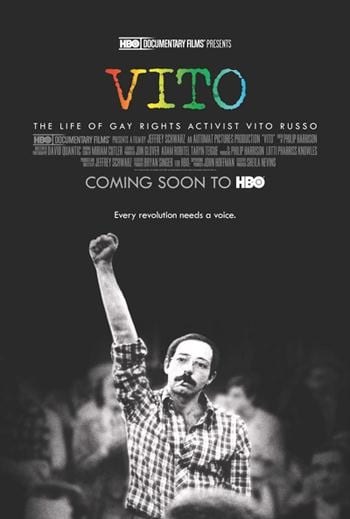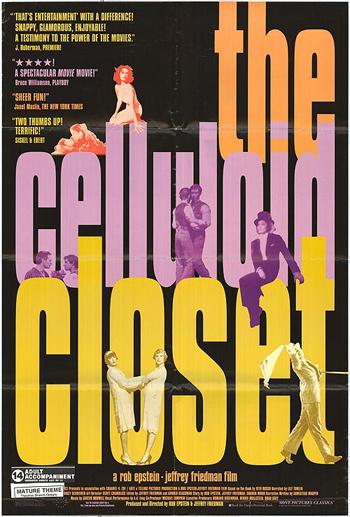Jeffrey Schwarz says one of the most empowering things he did upon coming out of the closet was to pick up a copy of Vito Russo’s book The Celluloid Closet. “That really rocked my world,” Schwarz recalls.
He wasn’t alone. Soon after the book was first published in 1981, it became a rallying cry for more diverse representations of gay and lesbian characters in film and TV. Russo analyzed hundreds of popular films, pointing out that when gay and lesbian characters did appear, they were either pathetic victims or sadistic killers, and almost all of them were dead by the final credit roll.
The book had such a huge impact on Schwarz that when he learned that the gay Oscar-winning filmmaking team of Robert Epstein and Jeffrey Friedman were setting out to make a documentary based on it, he contacted them and offered to apprentice, at no charge. “That was my break into filmmaking,” Schwarz recalls. In order to be a part of the project, he moved from New York to San Francisco and eventually helped with the editing of the film.
Now, Schwarz has taken his considerable research into the life of Russo and turned it into a beautiful and evocative documentary portrait, titled simply Vito. “About five years ago, it struck me how very important it would be to have a documentary portrait of Vito,” Schwarz says. “I thought, ‘This needs to be done.’ The thing about Vito is he would go on to become a hugely important AIDS activist. So his life was a way to map out gay life, from the pre-Stonewall era through much greater liberation to the AIDS crisis. I wanted to tell all those stories through his eyes.”
As it turned out, Schwarz had a wealth of archival material to draw from. When Epstein and Friedman made their 1989 AIDS documentary Common Threads: Stories from the Quilt, one of the people they chose to profile was Russo, who was then battling the disease. “I had a lot of outtakes to look at, and Rob and Jeffrey were very generous with their time and material.”
By this point, Russo had become a very public face of the epidemic, criticizing the government and pharmaceutical companies for their apathy in fighting the disease. Russo famously said that “AIDS is a test of who we are as a people” and co-founded the AIDS Coalition to Unleash Power (ACT UP) with playwright and activist Larry Kramer.
Common Threads would go on to win an Oscar, and Epstein and Friedman took their Oscar to Russo’s hospital room to share it with him. “I really wanted audiences to know about Russo’s brave fight against AIDS and his role in creating ACT UP. I think some young people don’t even know what that is, so it’s important for them to learn this bit of history.”
Schwarz says a real boon to Vito came when it was picked up by HBO. “They do such great work. Now a huge audience will get to learn about Vito’s life and work when it’s broadcast there.”
Schwarz has travelled extensively with Vito on the film fest circuit and says that experiencing the film with audiences has been truly gratifying. “I’ve been so touched by many of the responses I get. People who lived through the darkest days of the AIDS epidemic have thanked me for making it. It really is the story of an entire generation. I felt a heavy sense of responsibility to get that right.”


 Why you can trust Xtra
Why you can trust Xtra


